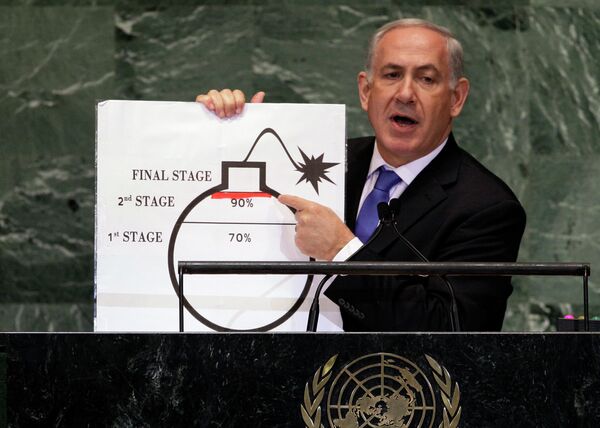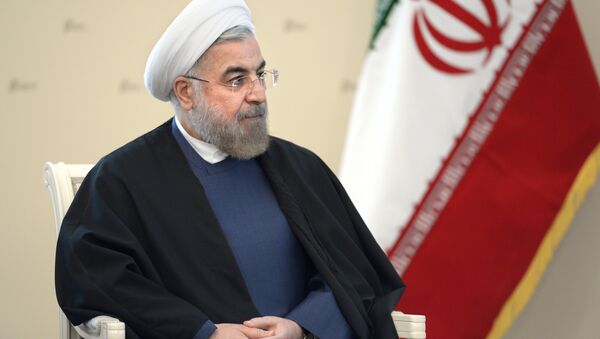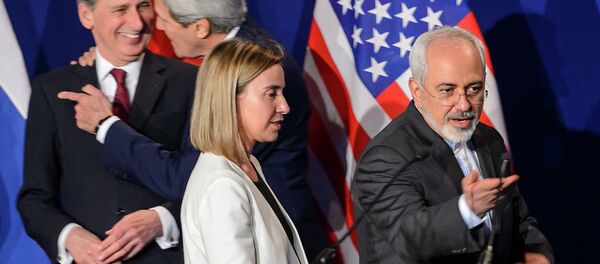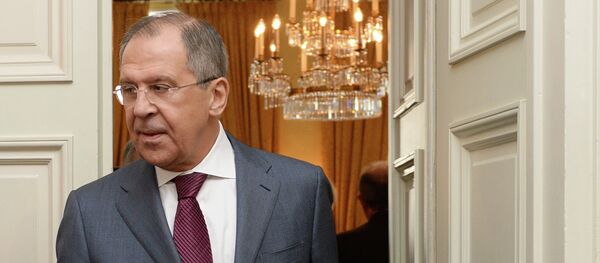That program came dangerously close to success. Iraq’s acquisition of nuclear weapons may only have been averted by Iraq’s defeat in 1991.
Given the ferocious war Iran fought in the 1980s against Saddam Hussein’s Iraq, Iran’s decision to seek an equivalent capability is understandable.
Saddam Hussein’s fall in 2003 removed this incentive.
An Iranian nuclear bomb would have balanced an Iraqi nuclear bomb. Against Israel and the US it makes no sense. Were Iran to threaten or use such a bomb against either of these states, it would face an overwhelming retaliation that would put the entire existence of the Iranian nation in jeopardy.
Not surprisingly therefore, following the fail of Saddam Hussein in 2003, Iran made peace overtures to the US and (according to the consensus of all US intelligence agencies) suspended work on its nuclear weapons program at the very latest by 2007.
Iran has however insisted on maintaining a capability to restart its program. This is unsurprising, given that Iran remains threatened by neighbors, led by Saudi Arabia, which might acquire such a capability themselves. In the meantime, however, Iran has abided by its obligations under the Nuclear Non-Proliferation Treaty.
All this is well understood in the US. Why then its relentless opposition to Iran?
Iran is an adversary of the US’s two key regional allies: Israel and Saudi Arabia.
In the case of Israel this is because Iran is the one power that could conceivably become a regional military rival. As the leading Shiite power, Iran also stands at the head of a powerful network of alliances, which include the Alawite government in Syria, the Shiite government in Iraq and the Lebanese Shiite movement Hezbollah, which fought Israel to a standstill in 2006.

These same factors, together with religious differences, also explain Saudi Arabia’s hostility.
Beyond that, Iran is a major oil and gas producer and a key Central Asian state. As such Iran falls naturally within the Eurasian system led by China and Russia.
Much has been written about how the US uses sanctions to isolate Russia from Europe. Far less is written about how the US uses sanctions to isolate Iran from its natural Eurasian partners, China and Russia. To the extent however that the US has come to see Eurasian integration as a challenge to its global dominance, isolating Iran from China and Russia is a key priority. This is why China and Russia support the easing of sanctions on Iran and why the US opposes it.
The sanctions policy has failed. It has not provoked a revolution causing the overthrow of the current Iranian government and its replacement by a pro-US regime. It is also increasingly failing to isolate Iran from China and Russia. Russia, in recent months, has discussed military and nuclear cooperation with Iran and has floated the idea of swapping Russian goods for Iranian oil.
In Iran’s case that is impossible. The US administration is therefore trying to cut its losses by agreeing a framework agreement, which gives it some control over the easing of sanctions and some chance of gaining influence in Tehran.
Iran for its part has moved a step closer to achieving its objective — getting sanctions lifted whilst preserving a capability to restart its nuclear program at short notice.






